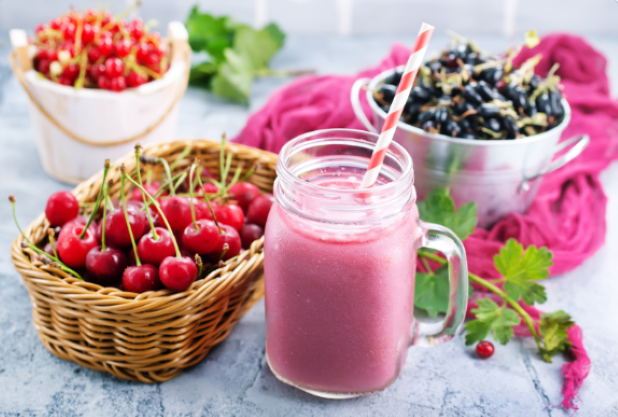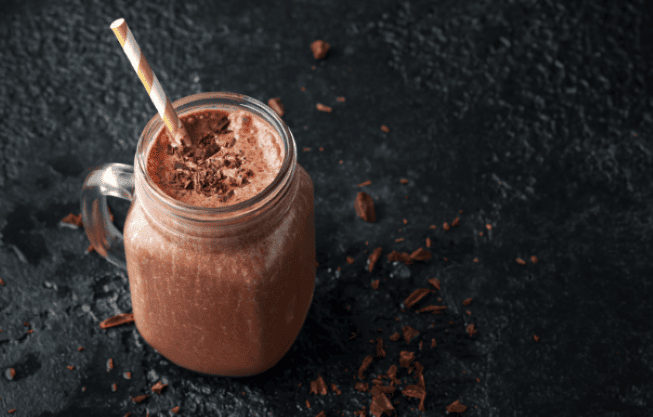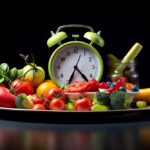
Weight loss is a journey surrounded by a mist of myths and misconceptions. The world is teeming with advice about losing weight, some of which can be contradictory or downright misleading. As we aim for a healthier lifestyle, it’s crucial to separate fact from fiction. So, let’s dive into the realm of weight loss and debunk ten of the most common myths, as busted by professional nutritionists.
Eating After 8 PM Leads to Weight Gain
One of the most popular weight loss myths is that eating after a certain time in the evening will lead to weight gain. The truth? It’s not the time of day that matters but the total number of calories you consume. Nutritionists stress that our bodies don’t suddenly store more fat just because the clock strikes eight. It’s more about what you eat and how much you eat over the course of the day. If you’re consuming more calories than you’re burning, regardless of the hour, that’s when weight gain can occur.
All Carbs are the Enemy
Many diets demonize carbohydrates, leading to the belief that cutting out all carbs will result in weight loss. While refined carbs (like sugary snacks and white bread) can lead to weight gain when overconsumed, complex carbs (like whole grains, fruits, and vegetables) are vital. They provide essential nutrients and are our body’s primary energy source. Nutritionists affirm that instead of avoiding all carbs, we should focus on integrating whole, nutritious sources into our diet.
Starving Yourself is the Fastest Way to Lose Weight
Drastically reducing your calorie intake might seem like a quick fix, but it’s not sustainable or healthy. When you deprive your body of the essential nutrients it needs, it goes into “starvation mode.” This means the metabolism slows down to conserve energy. Over time, this can lead to nutrient deficiencies and even severe health issues. Proper weight loss is a gradual process, achieved by a balanced diet and regular physical activity.
Diet Foods are the Best Choice for Weight Loss
With “low-fat” and “zero-calorie” labels flooding supermarket shelves, it’s easy to think these foods are shortcuts to weight loss. However, many of these products replace fats and sugars with artificial ingredients, which might not be healthy in the long run. Some of them even have more calories than their regular counterparts. Nutritionists advise reading the nutritional label and ingredient list carefully, and prioritizing whole, natural foods over processed “diet” options.

Fat Makes You Fat
The idea that consuming fats will lead to weight gain is a widely believed myth. While it’s true that fats are calorie-dense, they’re also essential for overall health. Fats aid in nutrient absorption, hormone production, and provide sustained energy. The key lies in the type of fat you consume. Unsaturated fats, like those found in avocados, nuts, and olive oil, are beneficial in moderation. On the other hand, trans fats and certain saturated fats can be harmful. Nutritionists emphasize a balanced intake of healthy fats for optimal health.
Drinking Water Before Meals Significantly Reduces Appetite
While drinking water is essential for hydration and overall health, the idea that consuming it before meals will drastically reduce your appetite isn’t entirely accurate. Some studies suggest it might help people eat slightly less, but this is not a guaranteed or significant method to curb hunger. Nutritionists advise drinking water throughout the day for hydration and not solely as an appetite suppressant.
All Calories are Equal
The concept that “a calorie is a calorie” regardless of its source is misleading. The body processes and uses calories from protein, fat, and carbohydrates differently. For instance, protein can help increase feelings of fullness and boost metabolic rate more than carbs or fat. The sources of these calories also make a difference in terms of nutrition and health benefits. 100 calories of candy, for example, won’t nourish the body in the same way as 100 calories of broccoli.
Weight Loss Supplements and Pills are Safe and Effective
Advertisements for weight loss pills and supplements promise rapid results without much effort. However, many of these products are not backed by credible research. Some can even be harmful, leading to side effects such as heart problems, digestive issues, or more. Nutritionists suggest that there is no “magic pill” for weight loss; the best approach is a combination of diet, exercise, and lifestyle changes.

Skipping Breakfast Aids in Weight Loss
“Breakfast is the most important meal of the day” is a phrase we hear often. Some believe that skipping it can help in reducing calorie intake, thus aiding in weight loss. However, missing breakfast can lead to increased hunger throughout the day, resulting in overeating later. Moreover, breakfast fuels the body for the day ahead. Nutritionists advise that, if you’re hungry, don’t skip this meal—choose a balanced and nutritious breakfast to kickstart your day.
Must Sweat Profusely for Exercise to be Effective
The belief that workouts are only effective when drenched in sweat is another myth. While sweating can be an indicator of increased heart rate and the body working hard, it’s also influenced by external factors like temperature and humidity. Some effective workouts, like strength training or yoga, might not make you sweat buckets but still offer health benefits. Nutritionists and fitness experts advocate for a focus on consistency and engaging in varied exercises rather than the sweat meter.
Conclusion
Weight loss is a unique journey for everyone, and it’s vital to approach it with accurate knowledge and understanding. By busting these myths, we hope to provide a clearer path for those striving for a healthier lifestyle. Remember, it’s not about short-term fixes but adopting lasting habits. When in doubt, always seek guidance from reputable health and nutrition professionals, and focus on what truly matters: your health and well-being.






